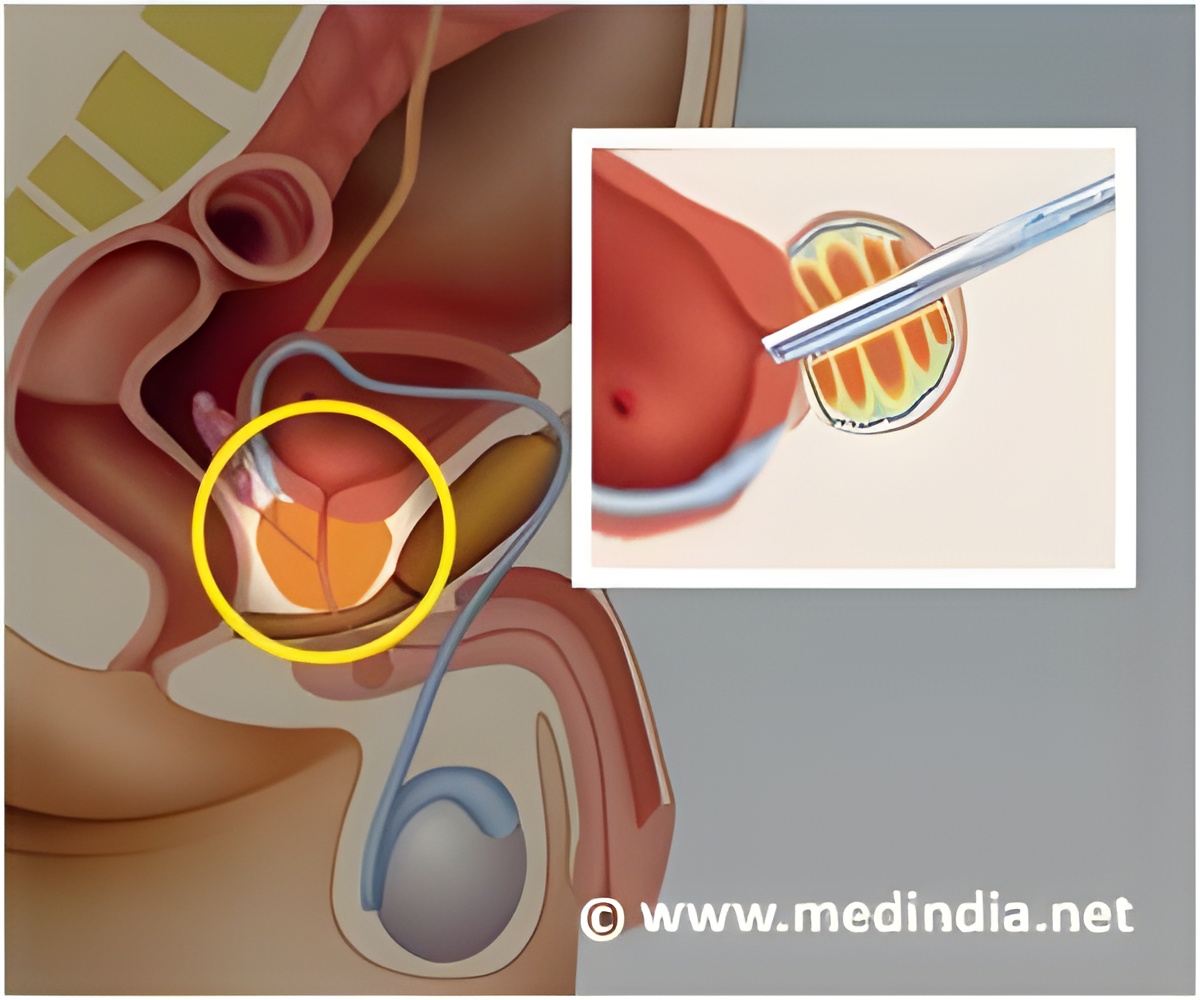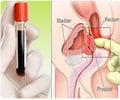A research team has enhanced a device developed to identify and grab circulating tumor cells, or CTCs, that break away from cancers and enter the blood.

The researchers believe this technology may function as a "liquid biopsy," revolutionizing conventional biopsy practices and significantly advancing the field of personalized medicine. Today's biopsies require the removal of tissue samples through a needle inserted into a solid tumor, a procedure that is invasive and sometimes painful. Biopsies are extremely difficult in metastatic prostate cancer because the disease often spreads to bone, where the availability of the tissue is low.
The biggest challenges in the treatment of cancer are that every person's tumor differs greatly and often mutates over time, especially in response to treatment. Researchers hope that by analyzing these CTCs, doctors will be able to understand the tumor evolution in each individual. By monitoring the genetic changes in CTCs and their invasiveness in a tissue culture dish, doctors may be able to quickly adjust their treatment plans in response.
"We are optimistic that the use of our NanoVelcro CTC technology will revolutionize prostate cancer treatment. We know that cancers evolve over time and that every patient's cancer is a unique problem — the 'one-size-fits-all' approach is not going to allow us to cure prostate cancer or any other cancer," said Edwin M. Posadas, MD, medical director of the Urologic Oncology Program at Cedars-Sinai's Samuel Oschin Comprehensive Cancer Institute and senior author of the article in the March online issue of Advanced Materials.
"This evolution means that we need to be able to monitor these changes over time and to ensure a patient's treatment is individualized and optimized. The molecular characterizations of CTCs will provide real-time information allowing us to choose the right treatment for the right patient at the right time. This improvement will be a great step toward developing personalized medicine," he added.
The existence of CTCs and their role in cancer metastasis was first suspected more than 140 years ago, and the first test for the routine measurement of CTCs became available in 2004, but earlier methods have produced low capture efficiencies and limited capability of captured cells to be utilized for later molecular analysis.
With the new system, a patient's blood is pumped through the NanoVelcro Chip — the microvilli protruding from the cancer cells will stick to the nanofiber structures on the device's surface, much like Velcro. This phenomenon facilitates the capture of rare CTCs in the blood stream. Next, laser capture microdissection technology allows the scientists to selectively cut out and pick up the CTCs from the NanoVelcro Chip, virtually eliminating any trace of any contamination from white blood cells, which can complicate analysis. Finally, the isolated and purified CTCs are subjected to single cell "next-generation" sequencing, which reveals mutations in the genetic material of the cells and may help doctors personalize therapies to a patient's unique cancer.
Source-Eurekalert
 MEDINDIA
MEDINDIA
![Prostate Specific Antigen [PSA] & Prostate Cancer Diagnosis Prostate Specific Antigen [PSA] & Prostate Cancer Diagnosis](https://images.medindia.net/patientinfo/120_100/prostate-specific-antigen.jpg)


 Email
Email





